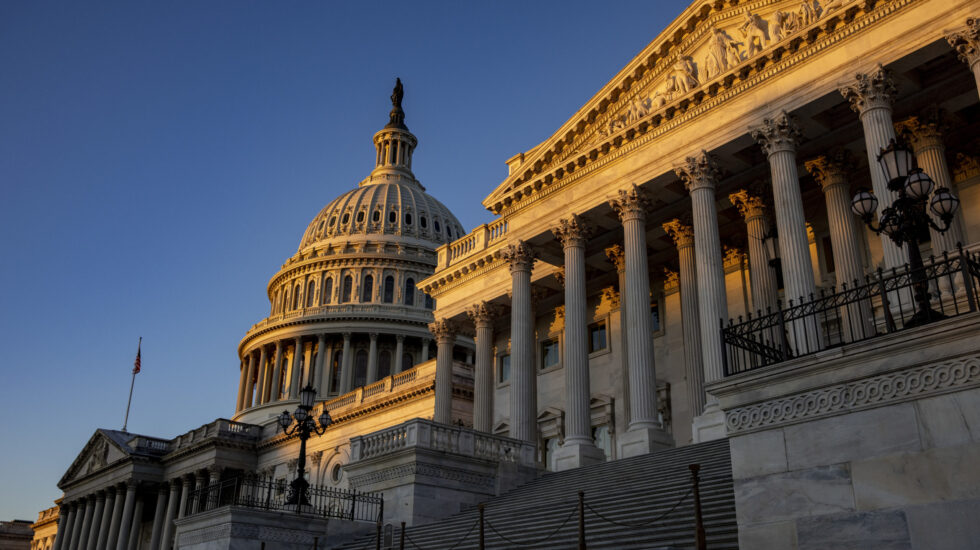The House approved legislation on Thursday for $1.9 billion in funding to improve security in and around the U.S. Capitol, but it came down to the wire as Democratic defections nearly sunk the bill.
While many agree changes must be made after the January 6 Insurrection, some of the party’s more liberal representatives objected to increased funding for police at a time when many progressives are calling for reduced funding of police departments. Reps. Ayanna Pressley, Cori Bush and Ilhan Omar voted against the bill. Reps. Alexandria Ocasio-Cortez, Rashida Tlaib, and Jamaal Bowman voted “present” — officially sitting out the vote.
The final vote on the costly and controversial bill came in at 213-to-212. And that came about only because of some last-minute wrangling on the House floor.
The opposition from within the Democratic Party suggests the bill, as written, stands little chance of passing the Senate and its 60-vote threshold. Every Republican in the House voted against the bill. GOP members in both chambers of Congress say the legislation is too expensive.
Washington State Rep. Jaime Herrera Beutler said in opposing the bill, that she wants to see changes made to Capitol security protocols before signing off on nearly $2B in funding.
Herrera Beutler (R-WA), House Approps Legislative Branch Ranking Member, opposing Capitol security bill: “I just think putting funds in place to this tune of almost at $2B, we need to know what we’re going to spend that money on. We need to know we got those reforms in place.” pic.twitter.com/tpQl2tMR2F
— Craig Caplan (@CraigCaplan) May 20, 2021
Some of the other line items in the bill that Republicans oppose include the $200 million dedicated toward establishing a “quick reaction force” within the D.C. National Guard so that Capitol Police can quickly call in military reinforcements in case of future emergencies. The slow reaction times for reinforcements was one of the key complaints following the Jan. 6 Capitol riots.
Other notable items in the legislation include:
- $250 million for retractable fencing, sensors and landscape changes
- $162 million to harden and fortify doors & windows
- Nearly $160 million to boost security for federal judges
- $14 million to upgrade the Library of Congress security system
- $8.6 million to equip the Capitol Police force with body cameras (they don’t have them now)
The largest single chunk of the proposed funding, nearly $700 million, would be used to pay down costs that were incurred by the Capitol Police, the D.C. police, the National Guard and the other federal agencies that responded on the day of the Capitol siege, or who remained in the area in the following weeks to patrol the Capitol campus.
